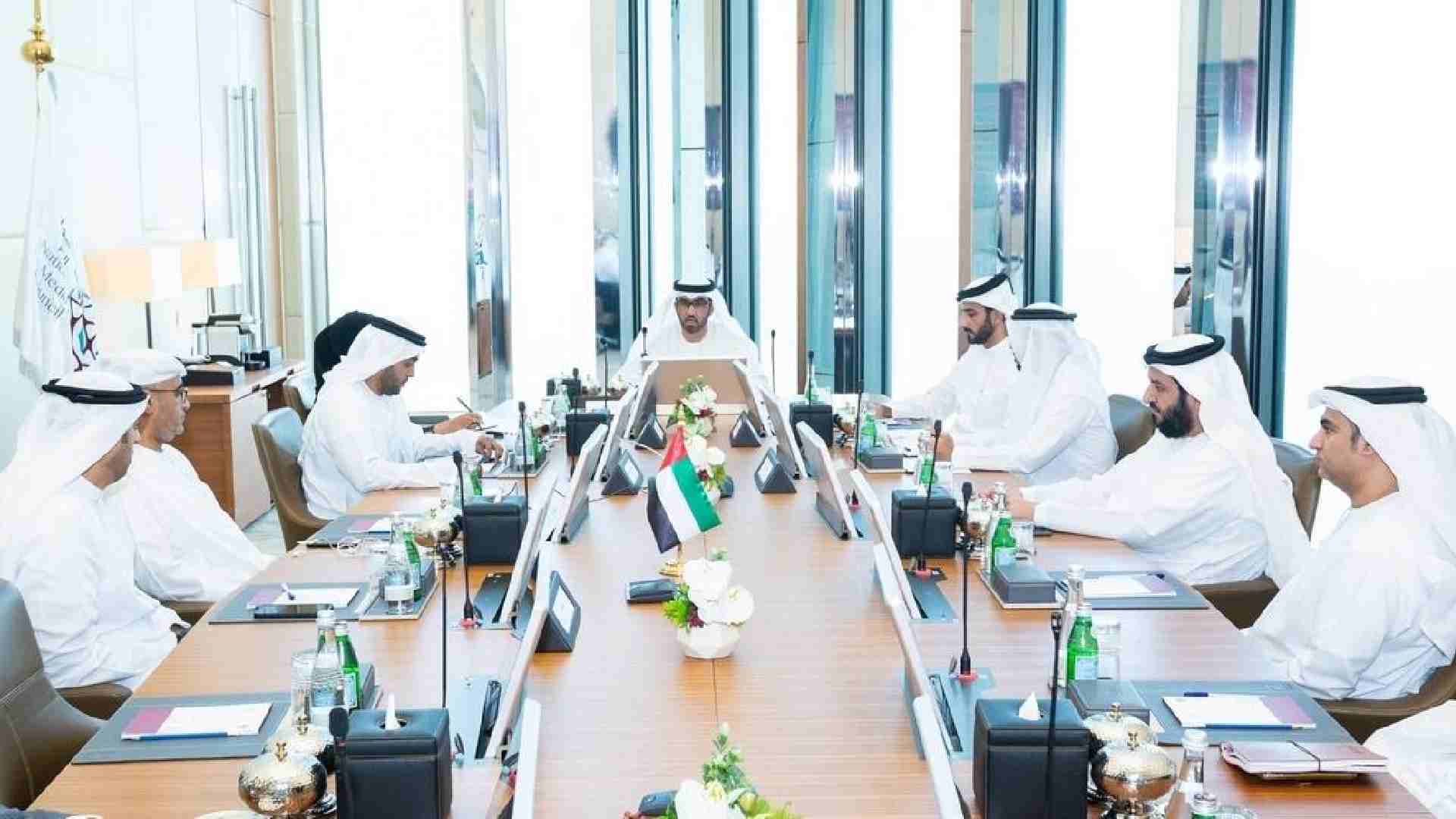The United Arab Emirates is a place of big dreams and bright variety. It gives many chances to millions of people who live there from other countries. Still, under this lies the policy of mandatory Emiratisation in UAE, an important part of the country’s economy and society discussions nowadays.
In this article, we will delve into the details of Emiratisation, its origins in history and how it has changed over time. Also, we see how these policies affect businesses and employment across the UAE. We will break down the important parts of the policy and its impacts in jobs. We want to make Emiratisation easier for you to understand by removing its complications, and analyzing where it might go in the future.
Understanding Mandatory Emiratisation in UAE

For many years, the United Arab Emirates has created a beautiful pattern of economic growth and cultural variety. People from all over the world are coming to this exciting desert country. They come because it has endless chances and looks promising. But, hiding below the surface of this big city scene is a strong desire to develop national identity and independence. This promise shows up in the rule of needed local hiring from UAE. This is an important plan that has become a main part for the country’s economy and society progress.
To ensure the effectiveness of Mandatory Emiratisation UAE, the government established a legal framework. These policies set quotas and targets for Emirati employment in different sectors, encouraging organizations to actively engage in the Emiratisation process.
Furthermore, the government has made agreements with schools and businesses to give Emiratis education, training programs and ways to improve their skills. This will make them better workers and encourage more participation in the job market.
But to get mandatory Emiratisation in UAE, you need more than just remembering the numbers and rules. It needs a deep knowledge of its past origins, how policies change and affect the money-making engine and society in Dubai. This complete article acts like a map, guiding you through the difficult parts of this big change program. First, we will look at the history of required Emiratisation in UAE. We will examine what caused it to start and the basic ideas that help make it develop over time. We will study the complicated structure of the policy, and break down its main parts. Then, we will understand how the public and private sectors work together to make it successful.
Evolution of Mandatory Emiratisation Policies
In the early stages, Mandatory Emiratisation UAE primarily focused on increasing Emirati representation in the public sector. The government began using Emiratisation goals and limits to make sure more citizens had jobs in public offices. This first move worked to make the national team stronger and give pride and control to people from the UAE.
As the UAE’s economy kept growing and changing, the requirement for hiring more nationals also expanded to cover private businesses. Understanding that a strong private sector is essential, the government introduced new rules. These encourage Emiratis to work in non-government companies of all sizes, including small and big businesses.
To help put these plans in motion, the UAE government made connections with schools and private education companies. These team-ups helped make custom education and training to prepare Emiratis with the skills needed by different fields. As a result, the workers improve their performance by focusing on training and teaching.
In addition, the policies for mandatory Emiratisation have changed, and now focus more on getting the private sector involved. Now, firms have to join the process, by reaching certain goals and hiring young people from UAE. The growth of Emiratisation rules shows the effort to make a strong and long-lasting economy for both locals and foreigners. These rules have not just raised the number of Emiratis hired, but also made more companies to succeed in their fields.
Significance for the UAE Economy
The success of the UAE’s economy it is due to its dedication to be independent as a country. In the UAE, Emiratisation rule is very important in this big plan. Its importance is felt deeply by the country’s economic goals.
Firstly, consider the strategic shift from dependence on foreign expertise to nurturing homegrown talent. Helping Emiratis learn important skills adds a powerful mix of innovation and cultural understanding into the economy. This cuts down on the need for skills from other countries. It also opens up new talent within national workers, making them come up with creative and fresh ideas.
Secondly, mandatory Emiratisation in UAE is a major factor that helps the economy grow at a steady rate. More Emiratis getting hired for high-skilled positions, consequently, this helps to share and keep knowledge. This ensures success and future growth. So, as Emiratis move up and become leaders, they use their understanding of local customs to do business more easily. As well, this makes them better prepared for different types of businesses.
Thirdly, this policy makes society work together and feel like they own it. When Emiratis see other people in their country contributing to the economy, the society becomes stronger and more active. Each person’s accomplishments push everyone to move forward together.
Finally, mandatory Emiratisation UAE tells a strong message to the world. By putting capital and power into its people, the UAE shows their commitment to long-term economic independence and self-sufficiency.
Key Components of Mandatory Emiratisation Policies
Mandatory Emiratisation in UAE is actually comprised of various interconnected components that are integral to its complex ecosystem.
- Quotas and Targets: For employers, it is mandatory to hire at least a certain percentage of nationals from the UAE. These quotas may increase over time or differ based on skill levels.
- Recruitment and Training Initiatives: The government supports private companies in the recruitment and training of Emirati candidates. These are career advice, skills training courses and internships.
- Financial Incentives and Disincentives: Some policies provide financial incentives for companies that fulfill or surpass their Emiratisation targets, such as lower fees or tax discounts. On the other hand, measures such as fines or visa restrictions may be taken against companies that fail to meet their targets.
- Reporting and Monitoring: Relevant government authorities require companies to report regularly on their Emiratisation progress. Monitoring mechanisms make sure about compliance and they give data for the adjustment of policy.
- Focus in High-Skilled Positions: While policies encompass all jobs, there may be a specific focus on increasing Emirati representation in professional and managerial roles. This requires collaboration with educational institutions and career development programs.
- Flexibility and Customization: Recognizing the diverse needs of different industries and companies, some policies allow for flexibility in meeting targets. This could involve exemptions for certain sectors, alternative approaches to achieving goals, or consideration of specific company circumstances.
- Continuous Evaluation and Improvement: Mandatory Emiratisation policies are continuously evolving. Regular assessments determine if they are effective, and the areas that need to be improved.
The mandatory Emiratisation in UAE is a composed ecosystem aimed at empowering Emirati citizens and strengthening the nation’s economy while achieving a more inclusive and sustainable future.
Education and Skill Development Programs
The impact of education and skill development programs within mandatory Emiratisation in UAE is notorious. These programs represent fertile ground, where talent of the Emiratis can be nurtured, trained and allowed to flourish in this competitive environment that constitutes the UAE’s employment scene.
To accommodate different industries’ diverse needs, the policy adopts a sector-based approach to skill development. Programs are carefully developed to give Emiratis the knowledge and skills that they need to be successful in certain professions, such as engineering, finance, healthcare, and many others. In contrast, these programs focus on practical application by providing scholarships, internships opportunities, training and mentorships. This immersion approach combines theoretical knowledge with the practical realities in a workplace.
Definitely, the program involves more than just learning traditional skills but rather working around technological innovations and future-readying the Emirati talent. These initiatives, ranging from teaching coding and data analytics to developing creativity and critical thinking skills in Emiratis prepare them for the challenges presented by a rapidly changing global economy.
Recognizing that learning is a lifelong journey is important. The policy encourages a culture of continuous skill development. Offering opportunities and specialized courses to enhance their existing skill sets. Following this, collaboration is key to enriching the experience, establishing partnerships between universities, vocational training centers and private companies. Education and skill development programs lie at the heart of the mandatory Emiratisation benefits, promoting Emirati empowerment.
Private Sector Engagement and Obligations
The government, of course, takes the lead by setting goals and providing resources to this journey but it is the private sector that really drives Emiratization. Instead of treating Emiratization as a mere compliance, envision it to be transformational for your business.
Building a capable Emirati workforce is not all about meeting quotas; instead, it is tapping into an unrecognized fountain of diversity and new insights. By offering open doors to Emirati candidates, creating an inclusive environment and ensuring equal opportunities you are not just meeting a quota but building a stronger company.
Think of yourselves as collaborators in the process – partners with universities, training institutes and even the government itself. Develop training programs in collaboration, hold career fairs and create interesting internship opportunities. This is not related to just filling positions, but fostering the next generation of Emirati leaders who will propel forward the UAE’s economy.
Do not just hire UAE talent, invest in their development. Train them internally within their scope and vision. Not only is it good for them but also for your company. The more your Emirati employees thrive, the more successful is your business in a win-win situation for all.
Remember, leadership sets the tone. As a result of actively mentoring, celebrating, and promoting Emirati colleagues, you send a powerful message: their success is your success. This creates a culture of tolerance and makes all people appreciate the individual skills that their fellow Emirati bestows.
Impact on Employment Landscape of Emiratisation Policies
There are various reasons behind the adoption of the mandatory Emiratisation UAE, such as reducing dependence on foreign workers, enhancing the abilities and expertise of Emirati citizens, and promoting social-economic development. Nonetheless, implementing Emiratisation involves challenges and repercussions for businesses and employees operating in UAE’s job market.
Companies have difficulty finding skilled and ambitious Emirati candidates, while also adhering to quota rules and accommodating their diverse workforce’s demands. Conversely, job seekers must overcome competition from foreign applicants when pursuing job positions. They must also adjust to different work cultures and environments despite facing pervasive prejudice and discrimination at times.
Acknowledging the mandatory Emiratisation benefits is crucial as it also generates positive impacts on the employment landscape. It opens new opportunities customized to improve advancement prospects for Emiratis and provides incentives aimed at cultivating national identity, instilling pride among citizens. Additionally, this initiative not only elevates quality standards within industries but also enhances productivity levels in labor markets.
Analysis of Emirati Workforce Participation
Underlying the mandatory Emiratisation policies in UAE is an intriguing narrative depicted through numerical data. These figures create a lively portrayal of the evolving character of Emirati involvement in their country’s labour market. The workforce in the UAE is witnessing a continuous increase in the proportion of Emiratis, indicating measurable progress and more extensive prospects. This shift manifests as a real transformation that reflects growing acknowledgment and appreciation for Emirati potential across various industries.
Furthermore, specific fields such as healthcare and education, display a notably increase in the representation of Emiratis. By adopting this focused strategy which acknowledges the demand for native proficiency in certain domains, it guarantees that their abilities are utilized to achieve optimal results and aid in advancing the nation as a whole.
The Emiratis, also are proactively engaged in pursuing higher education, refining their expertise in specific areas, as well as undertaking leadership responsibilities. This inclination towards upgrading skills guarantees that Emirati talent stays competitive and is well-positioned to make substantial contributions to the nation’s economy.
Although progress has been made, there are still hurdles to overcome. Addressing potential skills shortages in specific industries and guaranteeing equal avenues for career growth for every Emirati remain areas of focus. Utilizing data-driven insights, the policy is continuously adapting and refining its strategies to close these gaps and create a wholly inclusive future.
Effect on Expatriate Employment
The portrayal of expatriates takes a significant turn as Mandatory Emiratisation in UAE focuses on creating a dynamic environment that pairs the expertise and experience of these individuals with the increasing pool of talented locals. Rather than replace them, this approach aims to establish collaboration between both groups by acknowledging their respective worths. Consequently resulting in knowledge sharing, joint ventures and cultural appreciation.
Although there may be a gradual transition towards the employment of Emiratis in some positions, expats are still vital for certain specialized areas requiring unique skills and expertise. Their diverse backgrounds and exceptional abilities facilitate innovation, research, and development which drives progress across various sectors within the country.
Undoubtedly, in the UAE, Emiratis and expatriates alike need to adjust and enhance their skill set, constantly improving. The swiftly transforming worldwide scenario necessitates an unwavering dedication to lifelong learning while obtaining new proficiencies. With acceptance towards instructional courses, openings for professional growth along with platforms sharing informational resources both parties can sustainably compete.
The UAE places great value on the acquisition and retention of exceptional personnel, as evident from its provision of competitive remuneration, alluring perks and multicultural surroundings. This focus on managing talent, guarantees that individuals from Emirati and expatriates will discover a gratifying work environment to contribute towards the growth of the country.
In the end, the effectiveness of mandatory Emiratisation in UAE relies on a mutual objective for forthcoming growth. Creating an accepting and encompassing atmosphere can enable UAE to sustain recruiting top-notch talents worldwide while facilitating its own inhabitants to realize their complete capabilities.
Conclusion
The journey of mandatory Emiratisation in UAE is a path for aspirations, challenges, and adaptations, into a compelling narrative of national empowerment and economic transformation.
From the 1970s, the policy has become a multifaceted ecosystem nurturing Emirati talent across diverse sectors. The impact of Emiratisation resonates beyond quotas and statistics. It recasts the landscape of the workforce, witnessing a steady rise in Emirati participation, a shift towards sectoral specialization, and an unwavering focus on skill development. This transformation is not about displacing expatriates, it is about collaboration where their expertise blends seamlessly with Emirati aspirations.
This mandatory policy reflects the faith and confidence placed by UAE in its citizens. This translates into tangible efforts aimed at nurturing their talents.
We are available to provide guidance on the Emiratisation process and help you gain a deeper understanding of its complexities. You can reach out to us through various means, including phone calls, emails or meetings at our offices for more information. Our committed team is well-equipped with knowledge to address any questions or to give you confidence in navigating it successfully. Informed participation is crucial to achieving success in Emiratisation and we are here every step of the way, empowering you all along!
FAQs
What is Mandatory Emiratisation in the UAE?
Mandatory Emiratisation is a government policy requiring private sector companies to hire a certain percentage of UAE nationals to promote local employment and workforce participation.
Who needs to comply with the new Emiratisation policy?
Private companies in the UAE with 50 or more skilled employees must meet the specified Emiratisation quotas set by the Ministry of Human Resources and Emiratisation (MOHRE).
What is the current Emiratisation quota?
As of the latest update, companies must increase Emirati employees by 1% every six months until they reach 10% by 2026 for skilled roles.
What is the purpose of the Emiratisation program?
The program aims to integrate UAE nationals into the private sector, reduce dependence on expatriate labor, and boost the national economy.
How can companies meet Emiratisation targets?
Businesses can hire qualified Emiratis through MOHRE’s Nafis platform, offer training programs, and create attractive work environments for nationals.






